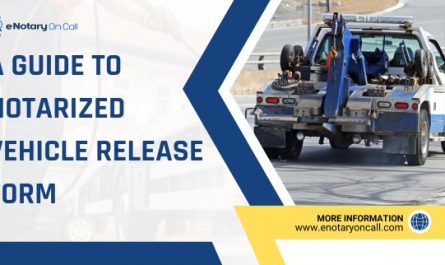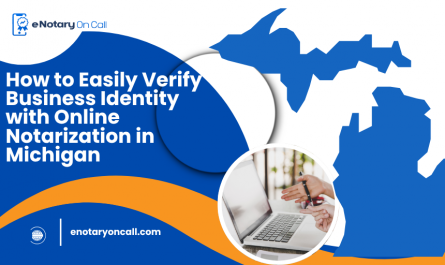Did you recently purchase a home or refinance your mortgage? If so, you probably had to go through the notarization process to authenticate your legal documents.
Traditionally, this process required a physical presence before a notary public. However, with the rise of online notarization, this is no longer necessary.
In fact, online notarization has experienced a 547% growth rate in the last year alone. While the convenience of remote notarization is evident, it is essential to address legal and regulatory considerations to confirm its validity and effectiveness.
In this blog, we will explore the key considerations and potential challenges involved in the adoption of online notarization, with a focus on the validity of electronic signatures and robust identity verification measures.
Understanding Legal and Regulatory Considerations in Online Notarization
“Legal and Regulatory Considerations in Online Notarization” refers to the various legal and regulatory aspects that need to be taken into account when implementing online notarization services. Notarization is the process of verifying the authenticity of documents and signatures, and with the advent of technology, online notarization has gained popularity.
However, there are specific legal and regulatory frameworks that govern notarial acts, and these considerations must be addressed when providing notarization services online. Compliance with these considerations is crucial to ensuring the validity and legality of online notarization processes.
- Validity of Electronic Signatures and Notarization
The validity of electronic signatures is a foundational concern in the adoption of online notarization. Legislation such as the Electronic Signatures in Global and National Commerce Act (ESIGN Act) in the United States and the eIDAS Regulation in the European Union acknowledges the legality of electronic signatures.
- For instance, the ESIGN Act stipulates that a contract or signature cannot be denied legal effect solely because it is in electronic form. Recognition and acceptance of electronic signatures facilitate the foundation for online notarization.
II. Authentication and Identity Verification
In traditional notarization, the notary typically verifies the signer’s identity through physical identification documents. In the context of online notarization, robust identity verification measures become imperative.
- For instance, platforms may utilize Knowledge-Based Authentication questions, biometric identification, or digitized identification documents to strengthen identity validation processes while adhering to data protection regulations such as the General Data Protection Regulation (GDPR) in the European Union.
III. Security and Data Protection
Ensuring the security and protection of sensitive personal and legal documents is paramount in online notarization. Encryption and secure transmission protocols are vital for safeguarding the confidentiality and integrity of documents.
- Regulatory guidelines should dictate the minimum security standards that online notarization providers must adhere to, securing compliance with data protection regulations such as the California Consumer Privacy Act (CCPA) in the United States.
IV. Jurisdictional Challenges
The adoption of online notarization raises questions regarding cross-border recognition. Each country has distinct laws governing notarization practices, leading to potential challenges in the acceptance of online notarized documents across borders.
- Harmonizing legal frameworks for digital transactions and fostering international collaboration is essential to addressing jurisdictional challenges and facilitating cross-border recognition of online notarized documents.
V. Record Keeping and Audit Trail
In the sphere of online notarization, maintaining comprehensive and tamper-proof electronic records is imperative. Such records should include details of the identity verification process, timestamps, and other pertinent information to create a robust audit trail.
- Regulators need to establish guidelines mandating the retention and secure storage of notarized transaction records by online notarization platforms, aligning with regulatory standards such as those outlined in the Sarbanes-Oxley Act (SOX) in the United States.
VI. Liability and Professional Standards
Addressing liability and professional standards is significant in the context of online notarization. Regulators must define distinct guidelines and standards for online notaries, outlining their responsibilities, liabilities, and professional conduct.
- Clarity in the delineation of notary responsibilities and liabilities, accompanied by adherence to professional standards, is essential for maintaining the credibility and trustworthiness of the online notarization process.
VII. Accessibility and Inclusion
It is important to consider accessibility and inclusion in the adoption of online notarization. While this advancement offers convenience and efficiency, not everyone may have access to the necessary technology or digital literacy skills required for online notarization.
- Regulators should make sure that traditional notarization remains accessible for individuals who may face barriers to participating in digital transactions, thereby upholding the principles of inclusivity and accessibility.
VIII. Compliance with Anti-Money Laundering (AML) and Know Your Customer (KYC) Regulations
Online notarization platforms must comply with anti-money laundering (AML) and meet your customers’ (KYC) regulations to prevent fraud and illegal activities. These platforms should have robust systems in place to verify the identity of customers and detect suspicious or fraudulent transactions.
- Compliance with AML and KYC regulations is crucial to securing the integrity and legitimacy of the notarization process and maintaining trust in the digital ecosystem.
IX. Legal and Technical Support for Online Notaries
Online notaries should receive adequate legal and technical support to perform their duties effectively. It is essential to provide them with guidelines, training, and resources to ensure they possess the necessary knowledge and expertise to carry out their role in the online notarization process.
- This support helps maintain the professionalism and competence of online notaries, ultimately benefiting the users and the legal system as a whole.
X. Ongoing Monitoring and Evaluation
As online notarization evolves, continuous monitoring and evaluation of processes and platforms is paramount. Regulators should establish mechanisms to assess the effectiveness and compliance of online notarization platforms and identify any emerging issues or gaps that require attention.
- Ongoing monitoring and evaluation help secure the continued reliability, security, and legality of the online notarization process while staying aligned with the changing legal landscape.
Conclusion
The adoption of online notarization marks a significant shift in legal processes, offering convenience in line with the evolving digital landscape. Addressing legal and regulatory considerations is crucial for successful integration, covering electronic signature validity, identity verification, data protection, and more. Thoughtful navigation of these considerations can standardize online notarization.
For seamless Remote Online Notarization services, consider eNotary On Call for secure and compliant online notarization.



